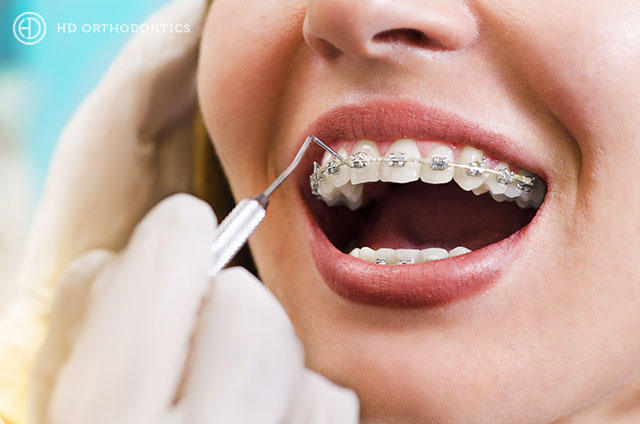Which Type of Orthodontic Treatment is the Most Discreet?


Long Beach, CA – With more adult patients than ever before turning to orthodontic treatment to freshen their smiles, there are more discreet treatment options popping up. Not everyone likes the idea of a mouth full of metal, so what are your options for more discreet treatments?
While no treatment option will be completely invisible, there are some options that are so discreet, some people may not even notice them.
- Lingual braces are highly appealing to patients who want to completely hide that they are in orthodontic treatment. They are metal braces, but with a twist – the brackets and wires are placed on the tongue, or lingual, side of the teeth! Lingual braces aren’t actually a new technology since they’ve been around since the 1970s, but they are regaining popularity in recent years as the brackets have gotten smaller, more comfortable, and easier for doctors to work with. Lingual braces are incredibly discreet, but they require a higher level of expertise, as well as more specialized tools, so not every orthodontist will offer them. At HD Orthodontics, we offer INBRACE lingual braces, which is the newest technology in lingual systems and subsequently offers several advantages over previously designed lingual brackets. (For more information on INBRACE, click here)
- Clear aligners, such as Invisalign, are becoming a very popular orthodontic treatment option. They utilize a series of clear, plastic aligners to straighten your teeth. They are removable, so it makes eating, drinking, brushing and flossing very easy. Aligners must be worn 22 hours a day to be effective. While they won’t be completely invisible in your mouth due to attachments that are commonly required to aid in tooth movement, they will be hard to spot because the aligners are made of clear plastic.
- Clear or ceramic braces work in the same way standard metal braces do. They consist of brackets and wires but are made of porcelain that will blend in better with your natural smile. This type of braces can often be more affordable than lingual braces or clear aligners.
As with anything, there are positives and negatives to each treatment option. Lingual braces offer the highest degree of discreetness, however, because the brackets and wires run along the tongue side, your tongue may develop sores until it gets used to the braces. Speech can often be affected as well for the first few weeks in treatment, but as the tongue accommodates to the braces, it will adjust and any lisping will resolve.
Clear aligners, such as Invisalign, are a great option for anyone who wants to correct their teeth in an aesthetic manner without having to worry about any dietary restrictions or oral hygiene hurdles. They do, however, require a high degree of patient compliance, so they are a wonderful option for adults and responsible teens who are committed to putting in their part of the work for their orthodontic treatment. Aligners must be worn around 22 hours a day in order to be effective, so that means patients must wear them all the time, except when eating, drinking, brushing and flossing. Eating in your aligners can damage them and drinking certain things could stain the aligners and could even warp the plastic if too hot.
Clear ceramic braces require a bit of attention to both your diet and your oral care. Because they use brackets and wires just like metal braces, you will have to avoid eating foods that are too hard, crunchy, chewy or sticky to prevent damage. Likewise, avoid foods and beverages that have high staining power as the elastic ties which hold the wires in place can become stained, which will make them more noticeable. Foods can sometimes get stuck on brackets, so you’ll need to pay close attention when brushing and flossing.
If you are interested in orthodontic treatment to perfect your smile, there are a host of treatment options for you to choose from. To determine which is right for you, schedule a complimentary consultation by calling 562-283-6590.

